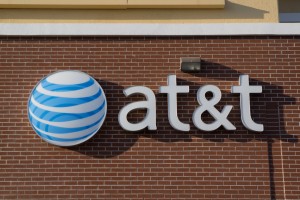The industry promised us it was going to work together to deliver 5G, and maybe we should be grateful it lasted this long, but AT&T’s latest announcement signals 5G friendliness is over.
February 2, 2017

The industry promised us it was going to work together to deliver 5G, and maybe we should be grateful it lasted this long, but AT&T’s latest announcement signals 5G friendliness is over.
Instead of waiting until 2020 and finishing the 5G race with everyone else, AT&T is making its move with the announcement of 5G Evolution Markets in Austin and Indianapolis at an event attended by Light Reading. With both cities being marked as testbeds for the 5G ambitions of the telco, the team claim it will produce a wireless network to offer theoretical peak speeds of 400Mbps.
The testbeds will include dedicated 5G outdoor and indoor test locations, as well as flexible infrastructure to allow modifications and updates as 5G standards develop, in what seems to be a token gesture to standardization bodies who are desperately trying to avoid the same fragmentation issues which were seen during the 4G migration.
The two testbeds form part of a greater model which brings together all the buzzwords you can think of under the nametag AT&T Network 3.0 Indigo.
“We see Indigo as the third generation of modern networking,” said John Donovan, AT&T’s Chief Strategy Officer. “Indigo is our term for a world where it isn’t just your connection speeds that are accelerating, but every element of the network becomes more seamless, efficient and capable. It is a living, evolving, upgradeable platform. Think of Indigo like the operating system on your phone. We’re taking that model to the network.”
Alongside 5G, Indigo will encompass elements like Big Data, artificial intelligence, opensource, cybersecurity and software-defined networking, in one massive buzzword assault on the industry. Each element is a hugely important aspect of the future connected economy, however this is unlikely to be the last time we see all grouped into a mass of corporate portfolio creation; expect to see competitors launch similar offerings in the near future.
The move itself is significant in the fact it demonstrates AT&T going its own way. Numerous promises have been made over the last few years that the industry would co-operate and work together in the path towards 5G, however it seems the promised riches were too much for the AT&T team to resist; how the rest of the industry reacts will decide whether we will face the same problems as 4G. It shouldn’t come as a surprise, but the idea of friendly 5G was a nice one at least.
About the Author(s)
You May Also Like








.png?width=300&auto=webp&quality=80&disable=upscale)


_1.jpg?width=300&auto=webp&quality=80&disable=upscale)


.png?width=800&auto=webp&quality=80&disable=upscale)